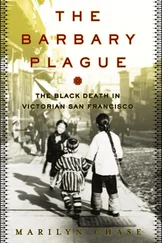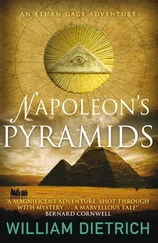William Dietrich - The Barbary Pirates
Здесь есть возможность читать онлайн «William Dietrich - The Barbary Pirates» весь текст электронной книги совершенно бесплатно (целиком полную версию без сокращений). В некоторых случаях можно слушать аудио, скачать через торрент в формате fb2 и присутствует краткое содержание. Жанр: Фэнтези, Исторические приключения, на английском языке. Описание произведения, (предисловие) а так же отзывы посетителей доступны на портале библиотеки ЛибКат.
- Название:The Barbary Pirates
- Автор:
- Жанр:
- Год:неизвестен
- ISBN:нет данных
- Рейтинг книги:4 / 5. Голосов: 1
-
Избранное:Добавить в избранное
- Отзывы:
-
Ваша оценка:
- 80
- 1
- 2
- 3
- 4
- 5
The Barbary Pirates: краткое содержание, описание и аннотация
Предлагаем к чтению аннотацию, описание, краткое содержание или предисловие (зависит от того, что написал сам автор книги «The Barbary Pirates»). Если вы не нашли необходимую информацию о книге — напишите в комментариях, мы постараемся отыскать её.
The Barbary Pirates — читать онлайн бесплатно полную книгу (весь текст) целиком
Ниже представлен текст книги, разбитый по страницам. Система сохранения места последней прочитанной страницы, позволяет с удобством читать онлайн бесплатно книгу «The Barbary Pirates», без необходимости каждый раз заново искать на чём Вы остановились. Поставьте закладку, и сможете в любой момент перейти на страницу, на которой закончили чтение.
Интервал:
Закладка:
William Dietrich
The Barbary Pirates
PART ONE
CHAPTER ONE
After I trapped three scientists in a fire I set in a brothel, enlisted them in the theft of a stampeding wagon, got them arrested by the French secret police, and then mired them in a mystic mission for Bonaparte, they began to question my judgment.
So allow me to point out that our tumultuous night was as much their idea as mine. Tourists come to Paris to be naughty.
Accordingly, I was hardly surprised when a trio of savants-the English rock hound William "Strata" Smith, the French zoologist Georges Cuvier, and the crackpot American inventor Robert Fulton-insisted that I take them to the Palais Royal. Scientific luminaries they may be, but after a hard day of looking at old bones or (in the case of Fulton) marketing impractical schemes to the French navy, what these intellectuals really wanted was a peek at the city's most notorious parade of prostitutes.
Not to mention supper in a swank Palais cafe, a game or two of chance, and shopping for souvenir trifles such as French perfume, silver toothpicks, Chinese silks, erotic pamphlets, Egyptian jewelry, or ivory curiosities of an even-more ribald nature. Who can resist the city's center of sin and sensuality? It was even better, the scientists reasoned, if such entertainment could be attributed to someone as discreet and shameless as me.
"Monsieur Ethan Gage insisted on giving us this tour," Cuvier explained to any acquaintance he met, reddening as he said it. The man was smart as Socrates but still retained his Alsatian provincialism, despite his rise to the summit of France's scientific establishment. The French Revolution has replaced breeding with ability, and with it traded the weary worldliness of the nobility for the curiosity and embarrassment of the striving. Cuvier was a soldier's son, Smith from agricultural stock, and Fulton had been sired by a failed farmer who died when he was three. Bonaparte himself was not even French but Corsican, and his generals were tradesmen's offspring: Ney the son of a cooper, Lefebre a miller, Murat an innkeeper, Lannes an ostler. I, sired by a Philadelphia merchant, fit right in.
"We're here to investigate revenue sources and public sentiment," I said to reinforce Cuvier's dignity. "Napoleon is keeping the Palais open in order to tax it."
Having resolved after my recent calamitous visit to America to reform myself, I suppose I should have resented the presumption that I was expert at negotiating the notorious Palais. But I had, in the spirit of social and architectural inquiry, explored most of its corners during my years in Paris. Now, in June of 1802, it remains the place Paris comes to be seen or-if one's tastes run to the scandalous or perverse-safely invisible.
Smith-recently fired from his canal-surveying job in England, and frustrated by the lack of recognition for his rock mapping-came to Paris to confer with French geologists and gape. He was a surveyor built like an English bulldog, balding and thick, with a farmer's tan and the bluff, ruddy heartiness of the ploughman. Given Smith's humble origins, English intellectuals had paid absolutely no attention to the rock mapping he'd done, and the snobbery rankled. Smith knew he was more intelligent than three-quarters of the men in the Royal Society.
"You're more creative for not being stuck in their company," I suggested when Cuvier brought him to me so I could serve as interpreter and guide.
"My career is like the ditches my canal company digs. I'm here because I'm not sure what else to do."
"As is half of London! The Peace of Amiens let loose a tide of British tourists who haven't come over since the revolution. Paris has hosted two-thirds of the House of Lords already, including five dukes, three marquesses, and thirty-seven earls. They're as transfixed by the guillotine as by the trollops."
"We English are just curious about liberty's relation to wickedness."
"And the Palais is the place to study, William. Music floats, lanterns glint, and a man can lose himself amid roving minstrels, angular acrobats, bawdy plays, amusing wagers, brilliant fashion, smart talk, intoxicating spirits, and swank bordellos." I nodded to encourage him.
"And this is officially tolerated?"
"Winked at. It's been kept off-limits to the French police since Philip of Orleans, and Philippe Egalite added the commercial arcades just before the revolution. The place has since weathered revolt, war, terror, inflation, and the conservative instincts of Napoleon with hardly a stammer. Three-quarters of Paris's newspapers have been shuttered by Bonaparte, but the Palais plays on."
"You seem to have made quite a study."
"It's the kind of history that interests me."
In truth, I was out of date. I'd been away from Paris and back in my homeland of America for more than a year and a half, and my frightful experiences there had made me more determined than ever to swear off women, gambling, drink, and treasure hunting. True, I'd been only partly successful in these resolutions. I'd used a grape-sized glob of gold (my only reward from my Trials of Job on the western frontier) to get a stake in St. Louis card games. There had been the distraction of a frontier barmaid or two, and a hearty sampling of Jefferson's wines when I finally reported back to the President's House in Washington. There he heard my carefully edited description of France's Louisiana Territory and agreed to my idea of playing unofficial American envoy back in Paris, trying to get Napoleon to sell the wasteland to the United States.
So I had a thimbleful of fame and a dram of respectability, and decided I should finally live up to both. Admittedly, I couldn't resist embroidering my military exploits when I was given trans-Atlantic passage by an American naval squadron headed for Europe to protect our shipping from the Barbary pirates. It was convenient to me that the bashaw of Tripoli, a pirate king named Yussef Karamanli, had declared war on the United States the year before, demanding $225,000 to make peace and $25,000 a year in tribute. As so often happens in politics, Jefferson-who had argued against a large military-was using five frigates built by his predecessor, Adams, to respond to this extortion with force. "Even peace may be purchased at too high a price," my old mentor Benjamin Franklin once said. So when Jefferson offered me a ride on his flotilla, I accepted, provided I was able to get off in Gibraltar before any fighting could start.
I needn't have worried. The squadron commander, Richard Valentine Morris, managed to be at once unqualified, timid, and procrastinating. He brought his wife and son along as if going on Mediterranean vacation, and was two months late setting sail. But his congressman brother had helped Jefferson win the presidency over Aaron Burr, and even in young America, political alliances trump inexperience. The man was a connected idiot.
My own war stories during the voyage convinced half the officers I was a regular Alexander, and the other half that I was a habitual liar. But I was trying, you see.
"You're some kind of diplomat?" Smith tried to clarify.
"My idea is that Bonaparte sell Louisiana to my own country. It's emptiness the French have no use for, but Napoleon won't negotiate until he learns if his French army in St. Domingue, or Haiti, defeats the slaves and can be moved on to New Orleans. I have a connection to the general here, Leclerc."
I didn't add that my "connection" was that I had tupped Leclerc's wife, Pauline, back in 1800, before she'd joined her husband in the Caribbean. Now, while Leclerc fought yellow fever as well as Negroes, my former lover-who was also Napoleon's sister-was reportedly learning voodoo. You can get an idea of her character from the debate in Paris on whether it was she, or Napoleon's wife, Josephine, whom the Marquis de Sade used as inspiration for his latest depraved pamphlet, "Zoloe and Her Two Acolytes." Bonaparte resolved the issue by having the author thrown into prison for either possibility. I read the book to monitor the debate and spark erotic memory.
Читать дальшеИнтервал:
Закладка:
Похожие книги на «The Barbary Pirates»
Представляем Вашему вниманию похожие книги на «The Barbary Pirates» списком для выбора. Мы отобрали схожую по названию и смыслу литературу в надежде предоставить читателям больше вариантов отыскать новые, интересные, ещё непрочитанные произведения.
Обсуждение, отзывы о книге «The Barbary Pirates» и просто собственные мнения читателей. Оставьте ваши комментарии, напишите, что Вы думаете о произведении, его смысле или главных героях. Укажите что конкретно понравилось, а что нет, и почему Вы так считаете.












